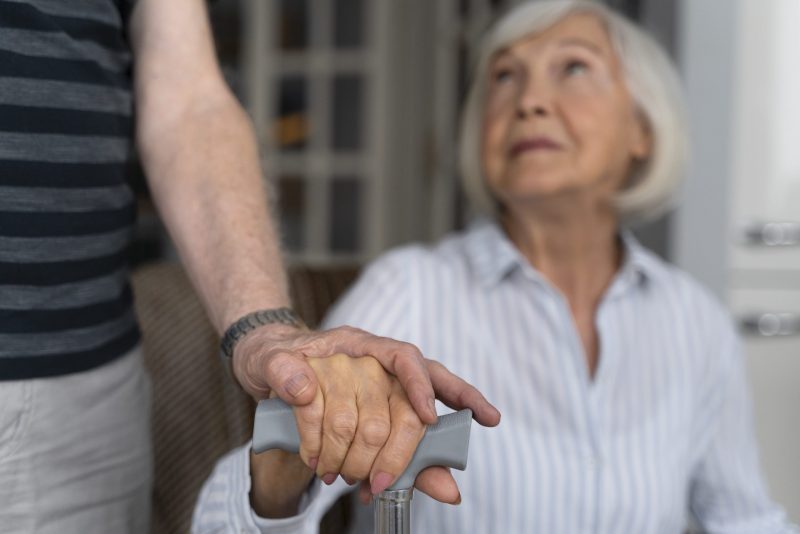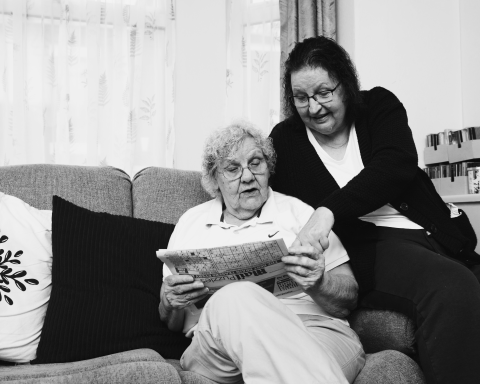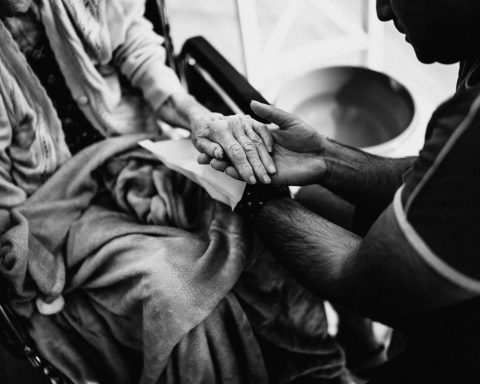Tending to other people’s needs due to illness, injury or disability requires a caregiver to be available throughout the day. In the case of caring for a family member, a caregiver can even spend 4 to 8 hours per day.
It may include tasks such as accompanying the person to medical appointments, organizing the medications, helping the person to take shower, preparing meals, and many other things. Although these tasks may be considered small favors, over time, they will take a toll on your body resulting in you developing caregiver stress syndrome.
What does caregiver stress syndrome look like?
Caregiver stress syndrome is a condition characterized by being physically, mentally, and emotionally exhausted. According to Ataru Igarashi et al. (2020), the burden of caring for other people is lowering your quality of life as well as impairs your work performance.
For example, if you adopt maladaptive strategies to cope with stress, you risk experiencing mental health issues such as depression, anxiety, and posttraumatic stress disorder (PTSD). Therefore, it is important to be aware of signs of stress, to prevent it, and to address it.
Caregiver stress syndrome may take different forms depending on the caregivers and their environment. The following are caregiver stress syndrome symptoms:
- Feeling overwhelmed, frustrated, or helpless
- Having sleeping difficulties, either sleeping too much or too little
- Changes in eating habits, leading to gaining or losing weight
- Having headaches or migraine
- Becoming more sensitive and easily irritated
Caregivers burnout syndrome
If not addressed properly, chronic stress can lead to burnout. In addition to experiencing signs of stress, you may also experience changes in your attitude.
For example, you are always attentive to the person that you are taking care of (i.e., spouse, parents, siblings, or clients) but when you burn out, you become unconcerned with their well-being. The symptoms of caregivers burnout syndrome include:
- Feeling exhausted and easily fatigued
- Isolate yourself from friends, family, and other loved ones
- Lose interest in activities you enjoyed previously
- Thinking of hurting yourself or the person for whom you are caring
Post-traumatic caregiving
In some cases, the stress burden could also result in symptoms of PTSD, also known as post-traumatic caregiving (PTCG). Ahmed Rady et al. (2021) concluded that PTCG happens especially when caring for people with severe mental disorders such as schizophrenia, dementia, and bipolar disorders.
Another possible cause of PTCG is traumatic events to a loved one such as a sudden traffic accident, heart attack, or stroke. All of these factors may reel you to experience symptoms of PTCG, including:
- Hypervigilance accompanied by depressive moods
- Nightmares or flashbacks of the traumatic events
- Negative emotional and physical response after exposure to traumatic events
- Avoidance of things that could stimulate the traumatic memories
How to prevent caregiver stress syndrome?
The high amount of emotional and physical demands involved with caregiving can drain the energy of even psychologically resilient individuals. Therefore, it is recommended to organize your daily tasks, take short breaks to care for yourself and take advantage of the many resources and tools available to help pre-empt caregiver syndrome.
Organize daily activities
Time management is very crucial for caregivers who need to manage their homes and tend to the needs of their patients. Moreover, informal or family caregivers who have other professional commitments still need to fulfill their job responsibilities. Juggling between all of these tasks will become easier if you can effectively manage your time.
The first thing that you need to do is to list down all of your daily activities. Then, re-order the list according to its priority. It will help you focus on things that need to be done on the following day and what can wait. You can also incorporate a morning routine into your daily life to easily start your day with enough flexibility in case of emergency.
Take short breaks
When creating your to-do list, taking a break should be considered one of your priorities. You need to make sure that you spend some time taking care of your health. If you feel guilty to indulge yourself in this luxury, remind yourself that you can’t continue to provide care if you fall sick.
Moreover, research shows that short breaks provide relief from caregiving, rejuvenate you, and enhance your resilience and well-being. To obtain these benefits, you need to spend your time in either mental or physical rest including getting enough sleep, consuming healthy foods, and engaging in physical activity.
Additionally, it is recommended to do regular checkups involving cancer, osteoporosis, and heart disease screenings since you are considered to be at risk of the physical and emotional burden.
Take advantage of external resources
While you may believe that it is your responsibility to provide care all by yourself, the reality is that you also have limitations in what you can do. You can lighten your load by outsourcing what is possible.
For example, when you re-order your to-do lists, you may assign some tasks to other family members, healthcare providers, or even meal delivery providers. You can try finding information on the available free or low-cost resources in your area to help reduce the financial burden.
If you are the main family caregiver, you could ask for practical help such as picking up groceries, frequent visits, and financial contributions toward hiring help. If you are also an employee, you might want to discuss your situation with your employer to see what offers your company has. Meanwhile, you can also join a support group for caregivers to gather useful tips to help deal with similar challenges.
How to relieve caregiver stress?
Since caregiver syndrome can get worse over time, it is important to relieve stress to reduce the pressures. The key to relieving stress is to practice self-care.
Katherine E Dorociak et al. (2017) define self-care as “a multidimensional, multifaceted process of purposeful engagement in strategies that promote healthy functioning and enhance well-being.” It is divided into several dimensions of personal life including psychological, recreational, and social.
Stay positive with humor
Concerning psychological and recreational domains, humor is a great tool to reframe negative events with positive ones. Humor can shift the negative perceptions of an event by reducing the physiological markers of stress through laughter.
In addition, it can help you bond with the person that you are taking care of, look at issues from multiple perspectives, and normalize your experience in caregiving.
If you are frustrated with your current situation, try to recognize the potential humor in it and imagine scenarios of a more extreme version of your situation that becomes even more ridiculous that you find yourself amused.
Another way to do it is by watching humorous sitcoms, memes, and online videos displaying ridiculous frustrating situations. The interpretations of life depicted in these resources can help you maintain a lighthearted attitude and change your perception of life, relieving some stress.
Aromatherapy for relaxation
Aromatherapy can be considered a stress reliever that can be done during recreational activities. It is available in various forms such as candles, diffusers, or body products. Therefore, aromatherapy can be convenient, especially when you do not have enough time.
For example, you can fill your room with a calming scent while you provide care, relieving stress not only for you but also others in the same room. You can also use aromatherapy for massage or meditation. Moreover, you can choose the different scents according to your physical and emotional state. Eun Hee Cho et al. (2017) recommended lavender scent for relaxation, especially when you suffer from sleeping difficulties.
Stay connected with other people
Self-care is also associated with social activities. Keeping in touch with other family members and friends allows you to separate yourself from being a caregiver to just being you. Take the initiative to invite people rather than wait for them passively. If not possible to meet face-to-face, then stay connected with them through video calls, instant messaging, or any other online platforms.
You may also consider connecting with other caregivers since you share similar experiences. In some cases, you would feel understood by them when you vent out your frustration. They could provide you with more practical and effective tips compared to when you talk with family and friends. It helps you get out from the negativity and refocus your energy on caregiving. Talk to others and express emotions. Stay in touch with family and friends and do things you enjoy with your loved ones.
In conclusion
As a caregiver, you may tend to focus more on the health of the other person while neglecting your health and needs. You may feel overwhelmed with the amount of care to provide that, in the long-term, caregiving becomes a source of distress impacting your well-being. In the effort of avoiding this negative impact, you need to be on the lookout for signs of caregiver stress and prevent it from happening or worsening by addressing it properly.
If you would like to know more about the different aspects of caregiving, visit the Personal Resilience Science Labs. Using the research of the Institute for Life Management Science, the lab produces courses, certifications, podcasts, videos, and other learning materials. Check out the Personal Resilience Science Labs today.  Photo by Freepik
Photo by Freepik



